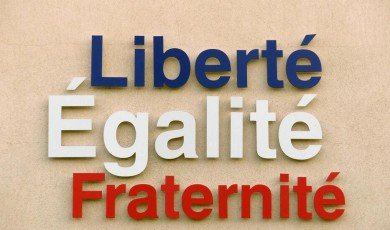
When Politics Cross Borders: Why Certified Document Translation Is Non-Negotiable
French political landscapes meet global challenges. In an era of fast-paced communication, the stakes are high when precision and authenticity are at the heart of every translated word.
Introduction: The Crossroads of Politics and Language
In today’s globalized society, borders are no longer the impermeable walls they once were. Ideas, debates, and electoral influences transcend nations with unprecedented speed, largely due to the digital revolution and evolving methods of political communication. For the Francophone political sphere, especially in contexts as dynamic as the French elections, this means a growing necessity to reach beyond linguistic boundaries. Whether it’s campaign strategies, policy papers, televised debates, or citizens’ manifestos, making political content accessible worldwide is crucial to supporting informed, inclusive, and democratic participation.
But as political dialogue extends across continents, one aspect becomes non-negotiable: certified document translation. Inaccuracy, ambiguity, or mishaps in translation can have profound consequences — not merely distorting the message but potentially influencing national or international opinion and results. That’s why utilizing professional document translation services is a prerequisite for anyone serious about cross-border political engagement.
Main Research: The Stakes of Political Translation
The Risks of Poor or Uncertified Translation
Imagine a crucial electoral law being mistranslated, or a candidate’s speech rendered inaccurately in another language. Such errors can fuel misinformation, disrupt diplomatic relations, or even undermine the legitimacy of entire election processes. Political discourse is subtle: cultural undertones, idioms, and context matter enormously. As translation is both science and art, relying on generic or automatic tools is a recipe for misunderstanding.
The context of the French elections is particularly sensitive. The nuances in discussions about the vote blanc (blank vote), youth participation, or the shifting landscape of televised debates require a level of precision that only expert translators can deliver. Inaccuracies can muddy critical distinctions between protest, disengagement, and open dissent, which carry different political weights.
Why Certified Document Translation Services?
As politics becomes more international, the authenticity and reliability of translated documents are scrutinized not just by voters, but also by official institutions, media, and watchdog organizations. The rise of global election monitoring and analysis means documents like election regulations, campaign finance records, and debate transcripts routinely require validation in multiple languages. Here, certified translation services UK firms offer vital expertise: they don’t just convert text, but guarantee its legal and procedural accuracy.
Certified document translation comes with actionable benefits:
- Legal Recognition: Official agencies, courts, and international observers often demand certified translations for legitimacy in cross-border disputes or monitoring.
- Risk Prevention: Certification dramatically reduces the chances of a controversial misinterpretation or manipulation of sensitive political documents.
- Trust in Democracy: Transparent, verified translations reinforce the integrity of the election process and communication, building public confidence across language barriers.
The Art and Science Behind Expert Political Translation
Not all translation is created equal. This overview of translation challenges dives deeper into the skills required to maintain the essence of original political texts. Certified translators bring a command not only of linguistic accuracy, but also of legal principles, sociopolitical context, and the art of nuanced communication. They understand what’s at stake when translating speeches about immigration reform, manifestos on direct democracy, or debates about digital participation, ensuring the message is just as forceful, clear, and culturally compatible as its source.
Case Studies: Document Translation in Action
During recent French elections, political parties reached out to diaspora communities across Europe, Africa, and North America. Each official communication — from candidate platforms to voter guides — had to be meticulously translated, certified, and adapted. In another instance, a televised presidential debate was simultaneously interpreted for international media outlets. Any misstep would have risked diplomatic misunderstandings or misrepresentation in global press coverage.
Organizations employing certified translation services UK consistently report fewer misunderstandings and greater effectiveness in international outreach. For them, document translation services are not a luxury, but a protective measure and a tool for expanding influence responsibly and ethically.
Beyond Elections: The Broader Impact
Political translation does not stop at elections. In advocacy movements, international conventions, public opinion research, and governmental exchanges, the need for trustworthy translation is ever-present. For French-speaking citizens seeking to engage in global activism, policymakers attending cross-border summits, or analysts reporting on France’s evolving digital democracy, certified document translation underpins their efforts. It upholds credibility, ensures compliance with international standards, and facilitates inclusive dialogue across nations.
Conclusion: Insisting on Precision Is Insisting on Democracy
As France and other Francophone nations increasingly navigate the interconnected web of global politics, bridging language divides is more than a technical necessity – it’s a democratic imperative. Certified translation is not simply about swapping words; it’s about conveying meaning, intent, and legality. The stakes are high: every translated document carries the weight of civic engagement, institutional trust, and the legitimacy of electoral outcomes.
The risks of inadequate or uncertified translation — from legal challenges to misinformed voters and strained international relations — far outweigh the investments required for professional services. By choosing expert document translation services, political actors, journalists, and citizens alike ensure that their voices are accurately heard and respected around the world.
In sum, as politics cross borders and engage audiences in dozens of languages, insisting on certified, professional translation is insisting on democracy itself. For those shaping or analyzing French elections, the message is clear: when every word matters, don’t compromise on accuracy or trust.








